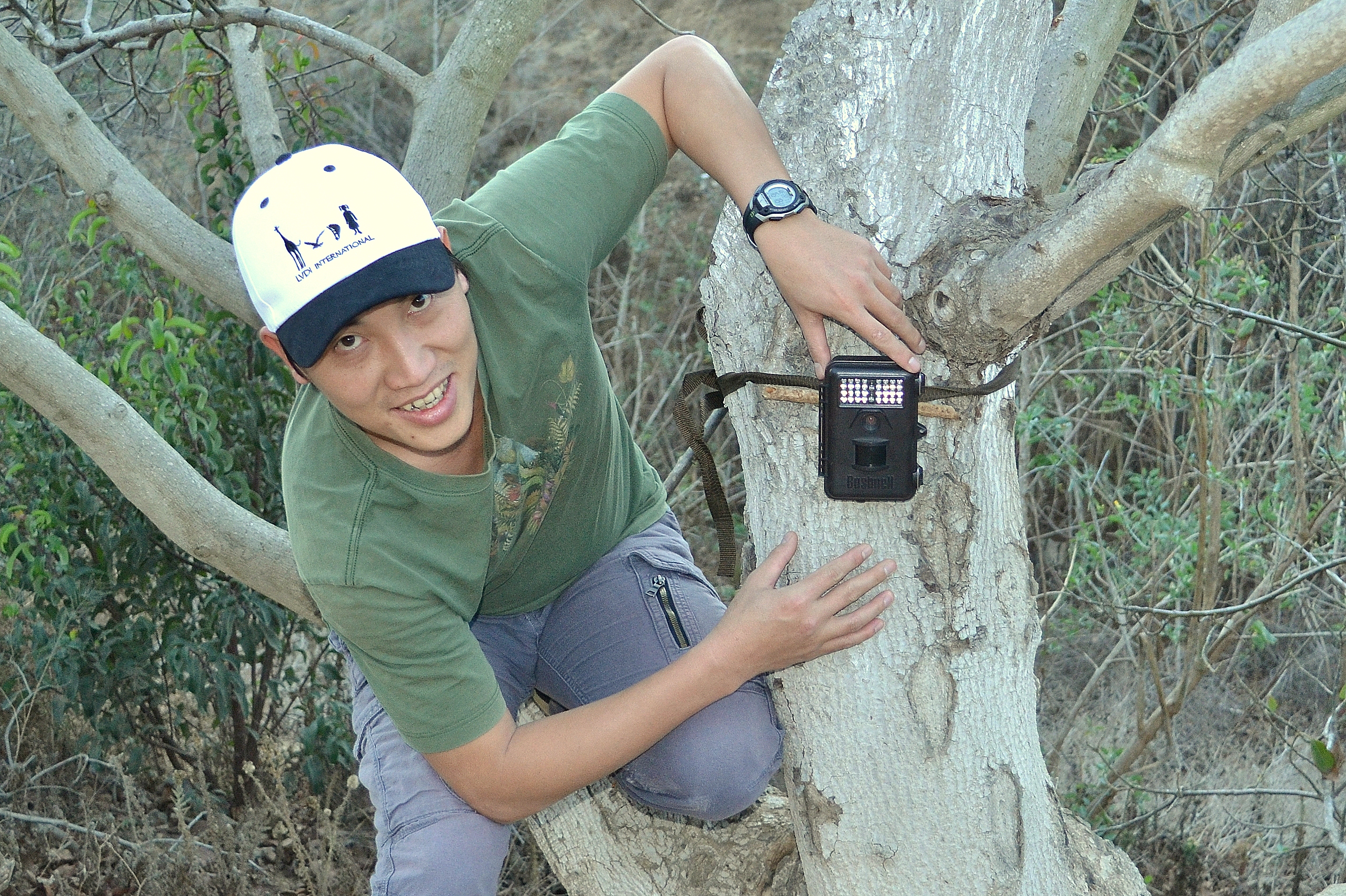The title of this post encapsulates how Mr. Van Tuan Bui (Vietnam Conservation Program Coordinator) feels after having completed his seven weeks of training at the U.S. headquarters of LVDI International. Earlier this year Mr. Bui was awarded a prestigious Russell E. Train Education for Nature Professional Development Grant from the World Wildlife Fund (see post Investing in Conservation and Research Leadership in Vietnam), and he chose to study with Dr. Chia Tan (Vice President) and Dr. Andy Phillips (President), receiving extensive training in ecological and behavioral research of wildlife and scientific communication.
We invited Mr. Bui to share his experience in a Q&A session.
Q: Can you briefly describe your professional background and how does the LVDI training program help advance your goals?
A: I am a wildlife conservation biologist from Danang, Vietnam. I have a B.S. degree in Ecology from Danang University of Education. For the past 7 years my work has concentrated on saving endangered primate species such as the grey-shanked douc, red-shanked douc, Hatinh langur, and northern yellow-cheeked crested gibbon in my country. I wanted to obtain advanced training in the application of camera trap methodologies and data analysis to expand my technical skills. Both Drs. Tan and Phillips have years of camera trapping experience. I believe my conservation research efforts in Vietnam can be greatly enhanced by participating in this program.
Q: What was the format or curriculum of the training program?
A: The training program was designed to enhance my strengths and address my weaknesses based on my current research and communication abilities. Dr. Tan and Dr. Phillips were like graduate advisors; they helped me create a curriculum that is relevant to my needs. Specific elements of this customized program included detailed examination of non-invasive monitoring technique, such as camera trapping and passive bioacoustic recording, as well as wildlife survey design and data analysis. I also had daily discussions with my trainers and learned about scientific writing, presentation, and grantsmanship.

Q: Specifically in what area(s) did you need help?
A: The fundamentals of research process, including defining research problems, reviewing of literature, formulating hypotheses, designing methodologies, collecting and analyzing data, and writing manuscripts to submit to the target journal. I worked as a field assistant for 2 PhD students since 2009 and have been a co-author on several papers; however, I have never conducted my own independent study or written a scientific paper by myself until now. During the training program, I completed every step of the research process, and I was successful in submitting two important papers to international journals.

Q: Overall are you quite satisfied with the training program? What was the most important skill you acquired?
A: The program truly exceeded my expectations. All of my learning objectives were fulfilled and throughout the program I received tremendous support from my two advisors. For me the most important part of my training was developing my critical thinking. Besides helping me improve my technical skills, my advisors shared their professional experiences and helped me see the “big picture”. This way of thinking is something I have never experienced before, and is not taught at any university in Vietnam. Now I understand how I can contribute to conservation and research in my country.
Thanks to the WWF Russell E. Train Education for Nature Program Professional Development Grant, and Dr. Tan and Dr. Phillips at LVDI International I’ve had the time of my life and it was a breakthrough in my career of scientific research and conservation! With continued support from Dr. Tan and Dr. Phillip, I am sure that I will be successful in my future professional pursuits.

